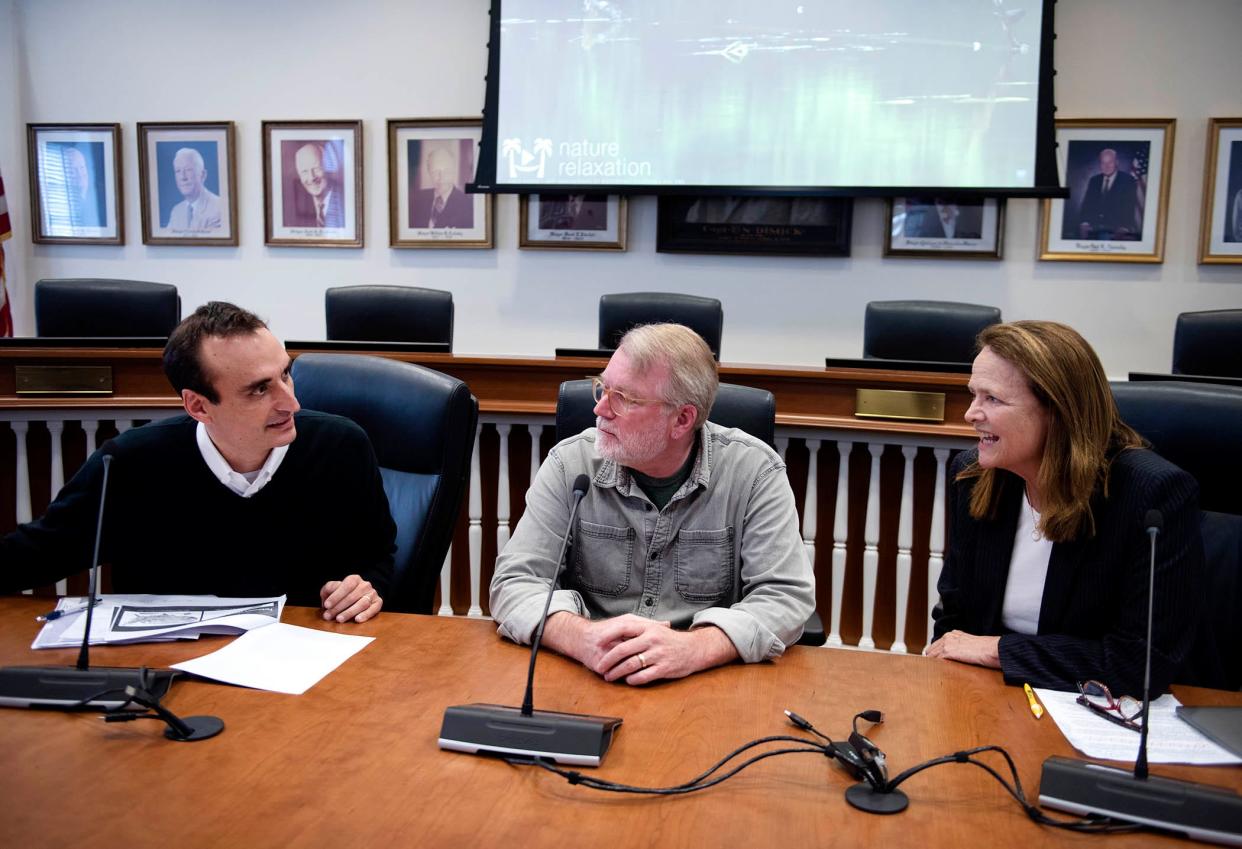Editorial: 'Songbirds' III offered lots to think about

As was expected, residents showed up in droves Monday for the third installment of the town's "Where Have all the Songbirds Gone?" series.
Begun in 2019 as part of the island's Green Initiative, the series aims to promote a healthy, toxin-free Palm Beach and raise awareness about the dangers that are posed by pesticides, fertilizer and other toxic chemicals. The second event was held in 2020.
As an indication of the level of concern, the panel discussion was jointly sponsored by the Palm Beach Civic Association, the Citizens' Association of Palm Beach, the Garden Club of Palm Beach, the Preservation Foundation of Palm Beach and the town. Each event has been a fount of information that called attention to the risks humans pose to themselves and the environment in general through the use of chemicals.
“Where Have All the Songbirds Gone? III," was moderated by documentary filmmaker Katie Carpenter and featured Dr. Ray Dorsey, a professor of neurology at the University of Rochester whose research has received funding from the Michael J. Fox Foundation for Parkinson's Research, and Dr. Bruce Lanphear, a professor of health sciences at Simon Fraser University in Vancouver, British Columbia.
This year's speakers focused on what they called "man-made" diseases, with an emphasis on neurological disorders — in particular Parkinson's — as well as the rising rate of cancer in people younger than 50. They also noted the risk to children — even in utero — from exposure to toxic chemicals.
“Most of us don't have a choice about whether we're going to be exposed to these chemicals. We can reduce our exposure somewhat, but it's almost impossible to eliminate it,” said Dr. Lanphear.
In Dr. Dorsey's book about Parkinson's, he points to the proliferation of harmful pesticides as a factor in increasing the risk of the disease. Both speakers noted that the mass use of pesticides and nonbiodegradable chemicals will have far-reaching negative effects on society's most vulnerable groups.
They cited studies to support their arguments about the dangers of these chemicals, many of which can remain in the environment for decades — even if they end up being banned.
"Ultimately, we need to strengthen the way we manage chemicals at the state and federal level," he said.
The scientists shared lots of facts to which everyone should pay attention. For example, residents need to talk with their landscapers so they know exactly what is being used to keep their yards looking good. What's a perfect lawn if one can't walk barefoot or the kids/pets can't play on it without risk?
It's also important that government agencies step up and do their jobs to protect the citizenry. Knowing that chemicals pose risks and doing nothing about it amounts to dereliction of duty.
We know it is up to the people to push for the changes they want, usually by voting for politicians who have their best interests at heart. But it will mean playing the long game, since getting the kinds of regulations for chemicals that we need will take years.
But in the meantime, Dr. Lanphear suggested an easy short-term fix that anyone can make: Avoid the use of pesticides, as even those sold over the counter can easily spread via runoff.
This article originally appeared on Palm Beach Daily News: Editorial: 'Songbirds' III offered lots to think about
